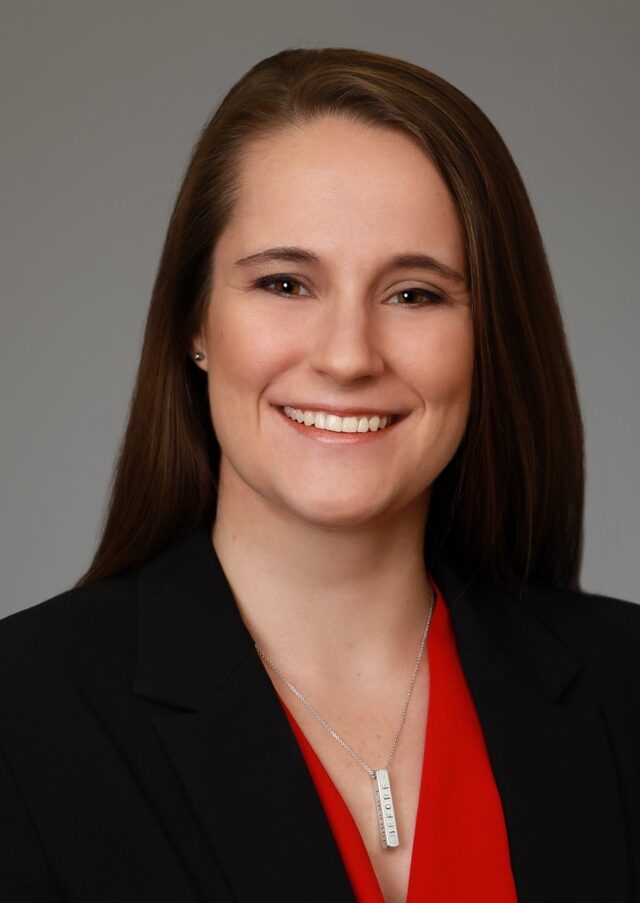 By Jacque S. Mayes and Beth Anne Jackson, Brown & Fortunato
By Jacque S. Mayes and Beth Anne Jackson, Brown & Fortunato
On May 10, 2021, the Department of Health and Human Services (HHS) announced that the Office for Civil Rights would interpret and enforce Section 1557 and Title IX’s prohibitions on discrimination based on sex to include: (1) discrimination on the basis of sexual orientation; and (2) discrimination on the basis of gender identity (the “Notification”). Section 1557 prohibits discrimination on the basis of race, color, national origin, sex, age, or disability in covered health programs or activities. The statutory language specifically links it to Title IX. HHS issued the Notification after the U.S. Supreme Court’s decision in Bostock v. Clayton County. and other subsequent court decisions.

In Bostock, the U.S. Supreme Court held that Title VII of the Civil Rights Act of 1964’s prohibition on employment discrimination “based on sex” includes discrimination based on sexual orientation and gender identity. In the opinion, the Court set forth its reasoning on how discrimination based on sexual orientation or gender identity status entails discrimination based on sex: the first cannot happen without the second.
In Neese v. Becerra, the United States District Court for the Northern District of Texas granted relief on November 11, 2022, to plaintiffs who challenged the HHS Notification under the Administrative Procedure Act and the Declaratory Judgement Act. The court granted relief after finding that the Supreme Court’s decision in Bostock does not apply to Section 1557 or Title IX.
The case in question involves two physicians who brought a class action suit to challenge the HHS policy set forth in the Notification and its interpretation of Bostock. The two physicians argued that the Secretary misinterpreted Bostock and that neither Section 1557 nor Bostock prohibits discrimination as reflected in the policy. They objected to the Secretary’s claims that Bostock defined ‘sex’ discrimination to encompass all forms of discrimination on the basis of sexual orientation or gender identity. The plaintiffs alleged that neither Section 1557 nor Bostock prohibits such discrimination “as long as they would have acted in the same manner if the patient had been a member of the opposite biological sex.”
As health care providers, the plaintiffs make sex-specific medical decisions relevant to “gender identity” in their health care practices. They both receive federal money subject to Section 1557. They argued that Section 1557 prohibits “sex” discrimination only in cases where a provider would have acted differently towards an identically situated member of the opposite biological sex. HHS argued that Bostock should be used to determine what “on the basis of sex” means in Title IX.
The court agreed with the plaintiffs and found that the Supreme Court Case Bostock did not expand “sex” to include sexual orientation and gender identity under Section 1557 or Title IX. The court discussed that, since Title IX does not define “on the basis of sex,” the court must construe the phrase. In a footnote, the court noted that when Congress enacted Title IX, “sex” was commonly understood to refer to physiological differences between men and women. The court discussed how “on the basis of sex” from Title IX is different from “because of sex” from Title VII. Because each statute has different phrasing, the court found it could not reflexively adopt Bostock‘s but-for causation analysis for Title IX.
Regulations in Title IX allow for “sex” distinctions in educational facilities. Specifically, Section 1686 allows for educational institutions to maintain separate living facilities and toilets, lockers, and shower facilities on the basis of sex. Still, the facilities are required to be comparable to those provided for students of the other sex. The court construed these regulations as evidence that Title IX expressly allows for sex distinctions and can sometimes even require distinguishing between sexes to promote equal opportunity. The court found Title IX’s protections to center on the difference between the two biological sexes rather than sexual orientation/gender identity status. It noted that in a healthcare context, the defendant’s interpretation of Title IX would “criminalize” sex-specific treatments that discriminate against patients “on the basis of sex.”
The court ultimately found that Bostock does not apply to Section 1557 or Title IX, and that Congress could have included sexual orientation and gender identity when adopting Section 1557, but they did not. Title IX’s ordinary meaning, the court concluded, must remain intact until changed by either Congress or the Supreme Court. After granting Plaintiffs’ motion for summary judgment in part, excluding injunctive relief, the court ordered parties to submit competing proposed judgments within ten days of the date of the Opinion and Order. Accordingly, further informati


